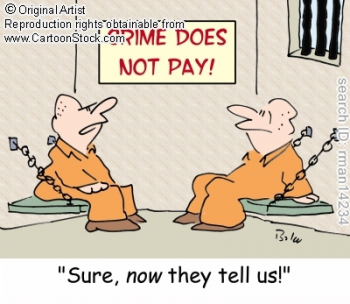Serendip is an independent site partnering with faculty at multiple colleges and universities around the world. Happy exploring!
Walled Women

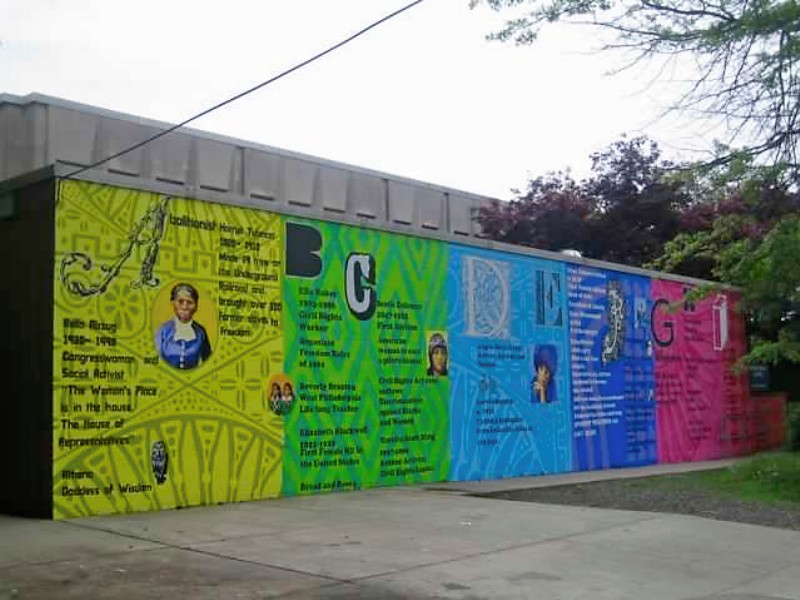
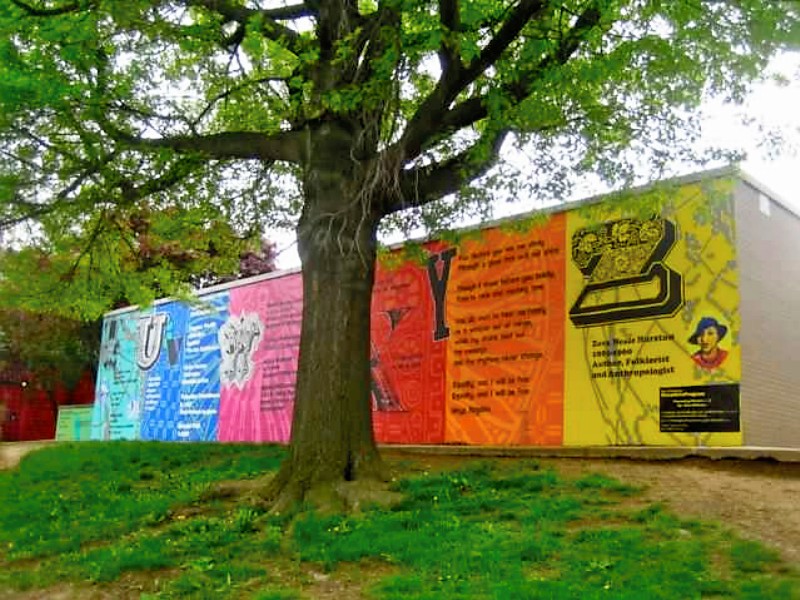
POST YOUR THOUGHTS HERE
Welcome to the on-line conversation for Women in Walled Communities, a cluster of three courses in a new 360° @ Bryn Mawr College that focuses on the constraints and agency of individual actors in the institutional settings of women's colleges and prisons.
This is an interestingly different kind of place for writing, and may take some getting used to. The first thing to keep in mind is that it's not a site for "formal writing" or "finished thoughts." It's a place for thoughts-in-progress, for what you're thinking (whether you know it or not) on your way to what you think next. Imagine that you're just talking to some people you've met. This is a "conversation" place, a place to find out what you're thinking yourself, and what other people are thinking. The idea here is that your "thoughts in progress" can help others with their thinking, and theirs can help you with yours.
Who are you writing for? Primarily for yourself, and for others in our cluster. But also for the world. This is a "public" forum, so people anywhere on the web might look in. You're writing for yourself, for others in the class, AND for others you might or might not know. So, your thoughts in progress can contribute to the thoughts in progress of LOTS of people. The web is giving increasing reality to the idea that there can actually evolve a world community, and you're part of helping to bring that about. We're glad to have you along, and hope you come to both enjoy and value our shared explorations. Feel free to comment on any post below, or to POST YOUR THOUGHTS HERE.

Overbrook High School
It passed my mind to post for class today, but I am stll going to go for it.
I am posting pictures that I found when I googled Overbrook High School. I worked there for a semester, helping students in "Algebra II" classes, though they were teaching basic algebra and geometry skills. It was such an eye opening experience for me. One event I can clearly remember is when one of the students was bragging about "just getting out" and returning to school. During this one class period, he repeatedly emphasized the fact that he was locked up and that he'd been through the system. It was such a surreal moment.
To add to this, when Jody gave us the ed newspaper in class today, the graducation rate for Overbrook was incredibly low and their college admission rate even lower. How does my isolated story relate to Overbrook's really low gradution and college track rates?


Drugs

Nixon, and later Reagan and Bush, ran highly successful media campaigns framing drug policy as being “tough on crime,” when hindsight provides incredibly compelling evidence that these policies are actually just “tough on people of color.”

Just wanting to get into the archive
the quote I mangled in class today. Paul Lauter's Reconstructing American Literature Project takes on the modernist catechism of literature as "discourse with no design on the world," as representing and creating without trying to change." He claims that to focus on the original use of language (as a complex, detached, aesthetic form) trains us to disassociate the "ways it is put together from what it is about, how it affects us, and how we might USE it....We attend to the shape, sinew, texture of a hand, not whether it offers us peace or a sword."

Angela Davis on abolition of slavery and prisons

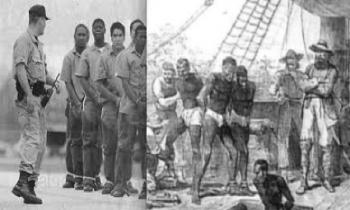 "We can do much more to combat the prison-industrial complex which is ravishing our communities if we recognize its historical connection with slavery and look at the nineteenth-century abolitionist movement as an inspiration for a late twentieth-century abolitionist movement that will work to reduce and ultimately abolish the use of imprisonment as the main means of addressing (or rather not addressing) social problems that are rooted in racism and poverty." Angela Davis, from her essay "Prison Abolition" in Black Genius: African American Solutions to African American Problems (p.203)
"We can do much more to combat the prison-industrial complex which is ravishing our communities if we recognize its historical connection with slavery and look at the nineteenth-century abolitionist movement as an inspiration for a late twentieth-century abolitionist movement that will work to reduce and ultimately abolish the use of imprisonment as the main means of addressing (or rather not addressing) social problems that are rooted in racism and poverty." Angela Davis, from her essay "Prison Abolition" in Black Genius: African American Solutions to African American Problems (p.203)

Zero Tolerance Policy = Prisons in Schools
Image 1: Students morning Routines in Boston Public Schools
Image 2: My high school
Image3: Nashua Street Jail in Boston, Ma
Image 4: Zero Tolerance Policy in schools





Not your typical prison image...
...but that's what having a Vision is all about, right? 

Stop and Frisk Policy and the New Jim Crow
This video was something a friend shared via facebook last night that related really deeply to my Memo topic, so I wanted to share it with you.
(http://www.youtube.com/watch?v=7rWtDMPaRD8&feature=player_embedded)

Motherhood and Incarceration
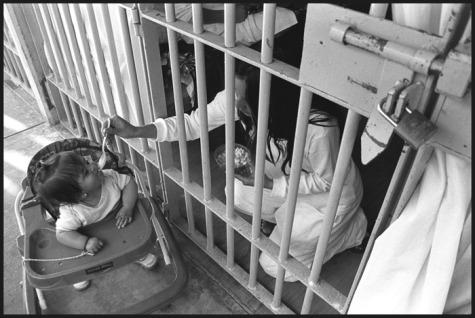
Ideas of motherhood are often tools that incarcerated mothers use to help them survive imprisonment, but, they fail to realize just how many barriers are imposed on them that inhibit their ability to be mothers once they are released.

Criminal Injustice--Vision Memo 1
Will these babies one day be criminalized the way their mothers are?

Burke: Voice Paper 1
Lost in Translation: The Loss of Voice through an Intermediary
As we continue to move deeper into the course of this 360 program, it has become clear to me that subjects I once thought simple are, in reality, exceeding complex. One of the most notable is the word that remains in the title of our class and the core of our discussion: voice. Exploring these complexities and recalling the many different types of voice we’ve studied, I’ve determined that, like language, there are different dialects in voice. Each person’s or groups voice differs based upon factors such as age class and culture. And, just like language, not everybody can understand each other’s voice. With this in mind, I arrived at a complicated question: does voice lose its power when it can’t be universally understood? The texts and programs that I will be examining in this paper explore the attempt to bridge this understanding gap through the use of “translation”. This translation then serves to make each group’s voice accessible to the others. Problematically however, during this process of translation, the original integrity of the expressed voice can potentially be lost, or altered beyond recognition.

Voice Paper #1
Voice and Identity
After leaving our class lunch in the Haffner courtyard on Friday, I felt like a weight had been lifted off of my shoulders. I have been thinking a lot lately about my choice to take a risk that day and say what I needed to say. I thought about that small window of time offered to “those who haven’t had a chance to say anything.” This sentence has been repeated every class and I found it puzzling each and every time. Whenever I heard my professor say this, I would stiffen up, look around the room, and silently do a roll call and mark off all my classmates who contributed at least once to the discussion. You spoke, you spoke, you spoke. I would come to same realization even though deep down, I already knew what was wrong. I hadn’t spoken.

an invitation....
to see Howard Zinn's Voices of a People's History of the United States. Discount tickets for groups of 10 or more at $15 per person.
"Voices" features a cross section of speeches from Susan B. Anthony to Martin Luther King Jr., and brings to life the extraordinary history of ordinary people who built the movements that made the United States what it is today, ending slavery and Jim Crow, protesting war and genocide, advancing gay and women’s rights, and struggling to right wrongs of the day. November 10 at 8pm at Plays & Players in Philadelphia, PA
www.playsandplayers.org

Cell Block Tango to Arrested Development
http://www.youtube.com/watch?v=xqV7HOVOPLE&feature=related
Cell Block Tango from the movie version of Chicago
http://www.youtube.com/watch?v=yBxAy4xjCfw
http://www.youtube.com/watch?v=qyMFdlQTLS0 (great words/intent and interesting he calls school the Jim Crow of our time...)
http://www.youtube.com/watch?v=fKKH9_N6EjU (This is great)
If you only can watch one clip, watch this "Hip Hop Documentary: Rap, Prision, and Economics"-- http://www.youtube.com/watch?v=w9sgSvBT7Dk&feature=related
Not so much for this particular post, but THIS for Barb's class and our discussion of Alexander's book. Here is a YouTube documentary by the same name that starts with the same arguments she makes..a reproduction to make it more accessible? Very little-almost nothing-is written about it, and there are no links I can find between the video and Alexander. Really interesting: http://www.youtube.com/watch?v=McZOXzlnC2U&feature=related
Great, easy to understand video about issues in America's criminal justice system: http://www.youtube.com/watch?v=lUt_fIB6A_Y&feature=related
Sorry to overload everyone!








